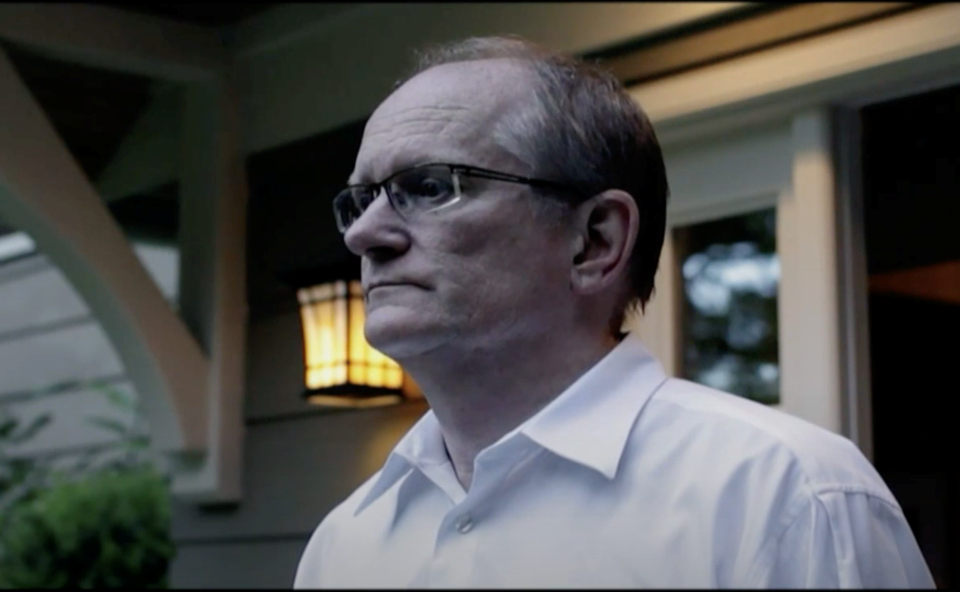The U.S. Securities and Exchange Commission has filed further claims against B.C. residents it alleges conducted a complex, international plan to defraud American investors by illegally trading shares in hundreds of junior public-traded companies via offshore entities.
In a civil claim filed Aug. 11 at the Supreme Court of B.C., the commission seeks a freeze order against assets belonging to offshore shell facilitator Fred Sharp and his alleged accomplices Paul Sexton, Zhiyeng Chen a.k.a. Yvonne Gasarch, Jackson T. Friesen, Courtney Kelln, Graham R. Taylor, and Mike K. Veldhuis — all B.C. residents.
In the claim, the commission alleges Sharp operated an "illicit enterprise facilitating securities fraud," with direct assistance from Kelln and Gasarch, residents of Surrey and Richmond, respectively. In addition to civil claims by the commission, the trio faces criminal fraud charges in the U.S.
The enterprise, known as the “Sharp Group,” allegedly used an array of offshore shell companies to conceal identities of clients involved with promoting U.S.-listed companies, thus helping them avoid disclosure requirements as they fraudulently manipulated the price of the stocks in “pump and dump schemes,” noted the commission. The group also conducted stock transfers and money transmitals via an encrypted communications network, as part of their service. Sharp called the network “Q,” dubbed himself Bond and Gasarch “Wires,” according to the commission’s preliminary evidence.
Taylor, Veldhuis, Sexton and Friesen were some of the Sharp Group’s “most significant” clients, as they collectively accounted for over $140 million in illegal stock sales.
Sharp, a former Vancouver lawyer, had other groups of clients engaged in similar arrangements, who are collectively alleged to have facilitated over $1 billion in illegal trades, generating roughly $770 million in profits since 2011, according to civil charges filed in the U.S. by the commission in August 2021.
The commission is asking the court for freeze (preservation) orders on 16750 Maki Rd. in Lake Country, owned by Sexton, and 2769 1st Ave. in Vancouver, owned by Friesen. The commission is also seeking to freeze vehicles belonging to the others.
The commission states it does not have “full insight into the defendants’ financial affairs and the whereabouts of their assets in Canada,” other than the noted assets plus the Canadian investment accounts already subject to a temporary restraining order issued in a Massachusetts court last year.
The commission relied on the B.C. government’s land titles registry. The government, notably, is in the process of finalizing filings for its beneficial ownership registry, which will allow company searches for residential titles.
The commission is also seeking a court order for the defendants to provide it with a sworn statement disclosing all of their assets, including any that are beneficially owned under a nominee or jointly with another person.
There is at least one instance of the defendants selling a property following the 2021 charges and prior to this claim — that being the $2.78-million sale of a Richmond home on Gabriola Gate, once owned by Gasarch.
The claim does not target Sharp’s home in West Vancouver.
After not responding to the allegations and attempts of service by a sheriff, Sharp has since been found liable for the fraud. On May 12, Massachusetts federal district court judge William G. Young entered a default judgment against Sharp, “accepting as true the factual allegations in the U.S. complaint in respect to Sharp and finding several violations of United States securities law,” noted the claim.
As such, aside from Sharp, none of the allegations against all the other defendants have been proven in court.
Fred Sharp responds to U.S. SEC case against him
Sharp was issued a US$24-million civil penalty and found liable for repayment of US$21.8 million plus US$7.2 million in interest.
But after the commission filed a US$29-million claim against Sharp at the Supreme Court of B.C. Sharp has recently responded, via criminal defence lawyer Joven Narwal.
Sharp now denies every allegation the commission has made, according to his response to notice of civil claim. Sharp claims he was denied procedural fairness, particularly because the email address to which service was purported to be effected was not his and attempts to serve him at his residence and by mail, under the Hague Convention, were unsuccessful.
“Evidence in the form of a certificate was wholly unsatisfactory as it failed to describe whether the person attempting service knocked on the door, rang the doorbell, left a card or took other meaningful steps,” notes the response.
As such, the default judgment should not be enforced in Canada, argued Sharp, in his Aug. 16 response to the court.
Sharp is also engaged in a complex and longstanding constitutional challenge against the Canada Revenue Agency, which is investigating his offshore tax arrangements. The CRA made a criminal referral in 2013, alleging Sharp’s business, Corporate House Group of Companies (Corporate House), was involved in a complex tax evasion scheme. In 2016, Corporate House arrangements were revealed in the Panama Papers leak.



